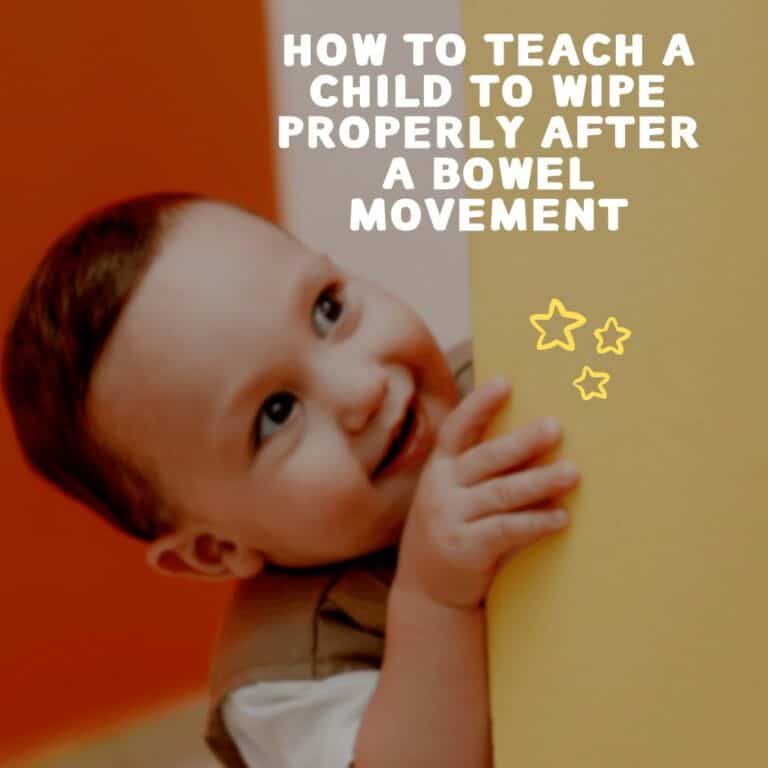Are you looking for ways to stop your toddler from throwing their food at mealtime? Are you tired of wasting food and cleaning up messes? If so, don’t worry – you’re not alone! In this blog post, we’ll give you some great tips on how to help your little one keep their food on the table.
Understand the Reasons Why

Understanding why your toddler is throwing food is the first step to ending the behavior.
Toddlers often throw food because they are no longer hungry, they are seeking attention, or because they have trouble expressing themselves in other ways.
If your child is throwing food because they are no longer hungry, it’s important to help them come to the table hungry. Make sure you’re feeding them regular meals and snacks throughout the day, and don’t let them fill up on drinks or snacks between meals.
If your toddler is throwing food in order to get attention, try not to show strong reactions when this happens. Instead of responding to the unwanted behaviors, give your toddler an alternative behavior that they can do instead of throwing or dropping food – such as clapping their hands or saying “yay!”
It’s also important to remember that toddlers may be thrown by their inability to express themselves verbally. By providing simple words for them to use (e.g., “more,” “all done,” etc.), you can help them communicate their needs better so that they feel more in control and less likely to resort to throwing food.
By understanding why a toddler throws food, you can take steps towards helping them learn appropriate behaviors at mealtimes and encouraging positive interactions between you both during mealtime.
Establish a Routine
Establishing a routine for your toddler is an important step in helping them learn appropriate behavior. Mealtime can be difficult for toddlers, since they are easily distracted and may not want to sit still at the table. By setting a consistent mealtime routine, you can help keep your toddler focused on eating and prevent them from throwing food.
Start by selecting a specific time each day to eat meals together as a family. This will give your toddler structure and help them understand when it is time to sit down and eat. In addition to establishing meal times, create a consistent eating environment with minimal distractions. Turn off the TV or any other devices that could disrupt their focus while they are eating.
Mealtime should also be relaxed and positive – NOT punitive! Don’t yell or scold your child if they throw food – this will only add stress to the situation and make it harder for them to stay focused on their meal. Instead, use positive reinforcement when they do something right (e.g., “Great job sitting still!”).
Finally, serve small portions of food at each meal so that it’s easier for your toddler to manage their plate without becoming overwhelmed or frustrated. With these tips in mind, you can create an effective routine that will help keep your toddler from throwing food during mealtimes!
Offer Alternatives to Throwing Food

When it comes to mealtime with toddlers, it can be a challenge to keep the food from being thrown.
Throwing food is a common phase of toddlerhood and is usually done as an expression of exploration and independence. The best way to address this behavior is by offering your toddler alternatives to throwing food.
Start by giving your toddler less food on their tray or plate, so there’s not as much temptation to throw it. When they are finished eating, have them “pass you” any unwanted food instead of throwing it away.
If they seem to be throwing for attention, provide positive attention for alternative behaviors such as playing with toys or participating in an activity.
You can also find other ways your toddler can satisfy their urge to throw such as offering them a basket of balls they can throw into another basket or providing them with safe objects they can toss around without making a mess. Keep in mind that while this phase may be frustrating, it’s important to stay calm and patient while teaching your child proper table manners.
Use Distraction Techniques

Distraction techniques can be an effective way to stop a toddler from throwing food.
Distraction techniques involve diverting the attention of the toddler away from the food and onto something else, such as a toy or game.
This can help to keep them focused on something else and prevent them from throwing their food.
When using distraction techniques, it is important to choose activities that are interesting and engaging for your toddler.
Activities could include playing games, singing songs, or reading a book together. Rewards such as stickers can also be used to encourage positive behaviour at mealtimes.
Another key element of using distraction techniques is consistency; it is important for parents and caregivers to maintain consistent expectations for mealtime behaviour so that toddlers know what is expected of them. Toddlers will respond best when they understand what is expected of them and when they are praised for following directions.
Finally, it is important to remember that toddlers may not always respond positively right away; it may take some time before they adjust their behaviour in response to these new expectations or distractions. With patience and consistency, however, distraction techniques can be an effective tool for helping toddlers learn appropriate mealtime behaviours.
Give Choices and Set Boundaries

Meals should be a positive experience for everyone. Giving your toddler choices and setting boundaries can help ensure that mealtime is a pleasant and enjoyable experience for everyone.
Setting boundaries is an important step in teaching your toddler not to throw food. It’s important to be consistent with these boundaries and model the behavior you want them to exhibit at mealtimes. For example, if you don’t want your toddler throwing their food, then you need to make sure that you don’t overreact when they do it.
Giving your toddler choices can also help reduce the amount of food being thrown. If they start throwing their food, give them the choice of either eating or playing away from the table. If they choose to play, remove them from the table and put their food in the fridge for later. You can also teach your toddler to sign or say “all done!” when they are finished eating so that you know when it is time for them to leave the table and go play instead of continuing to throw their food around.
Finally, as a parent, it is important that you decide when mealtimes happen so that eating doesn’t become a free-for-all during all hours of the day. Consistency in how meals are served will help communicate what is expected of your child during meals and will help reduce any frustrations or tantrums associated with mealtime behavior.
Speak Calmly and Firmly

When it comes to dealing with toddlers throwing food, it is important to remain calm and speak firmly.
Yelling or expressing shock and surprise will only make the situation worse. Instead, take a deep breath and calmly explain that throwing food is not allowed.
This should be done in a firm but non-confrontational way. If your toddler continues to throw food, don’t engage with them. Remind your child that they must talk to you in a respectful manner without whining or yelling.
To help prevent any further outbursts, try playing food games with your toddler (without throwing). This will give them an opportunity to practice their motor skills as well as learn about healthy eating habits. It’s also important to create routines around mealtimes so that your toddler knows what to expect from each mealtime experience.
Finally, sitting with your child during mealtimes can help keep the mess down and give you an opportunity to model good behavior for them. If they do throw their food, simply say “I can’t let you do that” or “no throwing” in a calm but firm voice and redirect their attention elsewhere.
Make Mealtime Fun
Mealtime should be a fun and enjoyable experience for your family. You can make it even more enjoyable by playing some food games with your toddler. Here are some ideas on how to make mealtime fun:
1. Give your toddler less food – This will help to prevent them from throwing their food around, as they’ll feel more in control of the situation.
2. Keep mealtimes light and fun – Reducing stress levels can help to minimize the chances of a tantrum or throwing food.
3. Play food games – There are lots of easy, fun games that you can play with your toddler while eating which will keep them entertained and focused on the task at hand. Try using a sticker chart or other rewards system to encourage good behaviour during meal times.
4. Understand why they’re throwing – If you understand why they’re throwing, you may be able to nip it in the bud before it becomes an issue during meals. For example, if they’ve finished eating and are bored, give them something else to do instead of throwing their food around .
Making mealtime fun can help to create positive experiences for your family and prevent any frustration or tantrums from arising during mealtimes!
Provide Healthy Snacks Throughout the Day

Snacking is an important part of a healthy diet, and providing healthy snacks throughout the day can help keep your children full and energized.
Healthy snacks are also great for teaching children about proper nutrition and instilling healthy habits early on.
There are a variety of nutritious snacks that you can provide to your children throughout the day, such as fruits, vegetables, nuts, yogurt, cheese sticks, whole-grain crackers or popcorn.
Fruits and vegetables are excellent sources of fiber and vitamins. Nuts provide essential fatty acids that play an important role in brain development in young children.
Yogurt is a great source of protein and calcium while cheese sticks provide an excellent source of calcium as well. Whole-grain crackers or popcorn offer complex carbohydrates that give children lasting energy throughout the day.
When providing snacks for your children, it’s important to remember to focus on portion sizes to ensure they don’t overindulge in unhealthy sugary treats or too many calories from fats or carbohydrates. Additionally, try to avoid giving your kids sugary drinks such as soda or juices with added sugar; instead choose water or low fat milk which will help them stay hydrated throughout the day.
By providing healthy snacks for your kids during the day you can help them develop good eating habits from a young age which will last them throughout their lives!
Create a Safe Environment for Your Toddler to Explore Food

Mealtimes are an important opportunity for parents and toddlers to bond and explore new foods. To ensure your toddler has a positive experience, it’s important to create a safe environment where your little one can feel free to explore food.
Set the stage with a proper mealtime routine. Structure helps kids feel more comfortable and secure, so try to keep mealtimes consistent. Have your child sit at the table with you, serve meals family-style, and provide plenty of time for your child to eat without distractions or pressure.
Make sure there are plenty of healthy choices at mealtimes. Offer them foods that are colorful, fun shapes or textures. Encourage them to use their hands as much as possible; this will also help them learn about different textures and tastes in food.
Let your toddler decide how much food they want to eat; this helps them become comfortable with self-regulation around food. Don’t force them to eat if they don’t want it; instead offer something else that may be more appealing. It’s also important not to label certain foods as “yucky” or “gross” – this can discourage your child from trying new things!
Finally, don’t forget about patience & praise! Meal times should be a fun experience where you can bond with your child while encouraging healthy eating habits; so don’t forget to offer lots of praise when they do try something new!
Praise Good Behavior
Praising good behavior is a great way to encourage children to continue making good choices. It helps them feel happy, successful, and respected and can boost their self-esteem. Additionally, it teaches them how to be responsible for their actions and how they can positively contribute to the family.
When praising your child, try to be genuine and specific. For example, you could say “I appreciate the way you used kind words when talking with your sister” rather than “Good job!” or “That was nice of you”. Acknowledge any effort that is put forth towards good behavior so that your child knows that even small steps are worth celebrating.
Consider using rewards as extra motivation for positive behaviors. Rewards don’t have to be material items – a simple pat on the back or extra hug can go a long way in reinforcing good behavior. Additionally, use natural consequences when appropriate – if a child chooses not to complete their chores, they may lose out on an activity later in the day that they were looking forward too.
Most importantly, remember to be consistent with praise and discipline so that your child knows what is expected of them at all times. Praise good behavior every time it occurs – even if it isn’t perfect – so that children learn which behaviors are valued by the family.
Remain Patient and Consistent

Remaining patient and consistent is one of the best ways to keep a toddler from throwing food. It is important to stay neutral and remain consistent in stating that food belongs on the plate or tray.
If your toddler throws their food, try replacing it while verbally conveying that the food belongs on the plate. You can also give them a small bowl to discard unwanted food in. If your toddler continues to throw their food, you may need to end the meal.
It is important not to overreact as this may encourage further throwing. Instead, observe your child and try to find out why they are throwing their food in order to better address the behaviour. If possible, offer up bites little by little rather than all at once so as not to overwhelm them with too much food at once.
Additionally, offer a variety of foods frequently so they don’t become bored with eating the same thing over and over again. Lastly, it is important to remember that toddlers are still developing and have different expectations when it comes to their eating habits that may not match yours.
Conclusion
Throwing food can be a difficult habit for toddlers to break, but it is possible. With a few simple strategies, such as keeping meal times short and teaching your toddler the importance of eating slowly, you can help to stop the problem. Be sure to remain calm during mealtimes and explain the rules in gentle terms.
If your toddler continues to throw food, reward him or her for good behaviour and simply remove them from the table when necessary.
With patience and consistency, you can help your toddler learn how to eat without throwing food.



